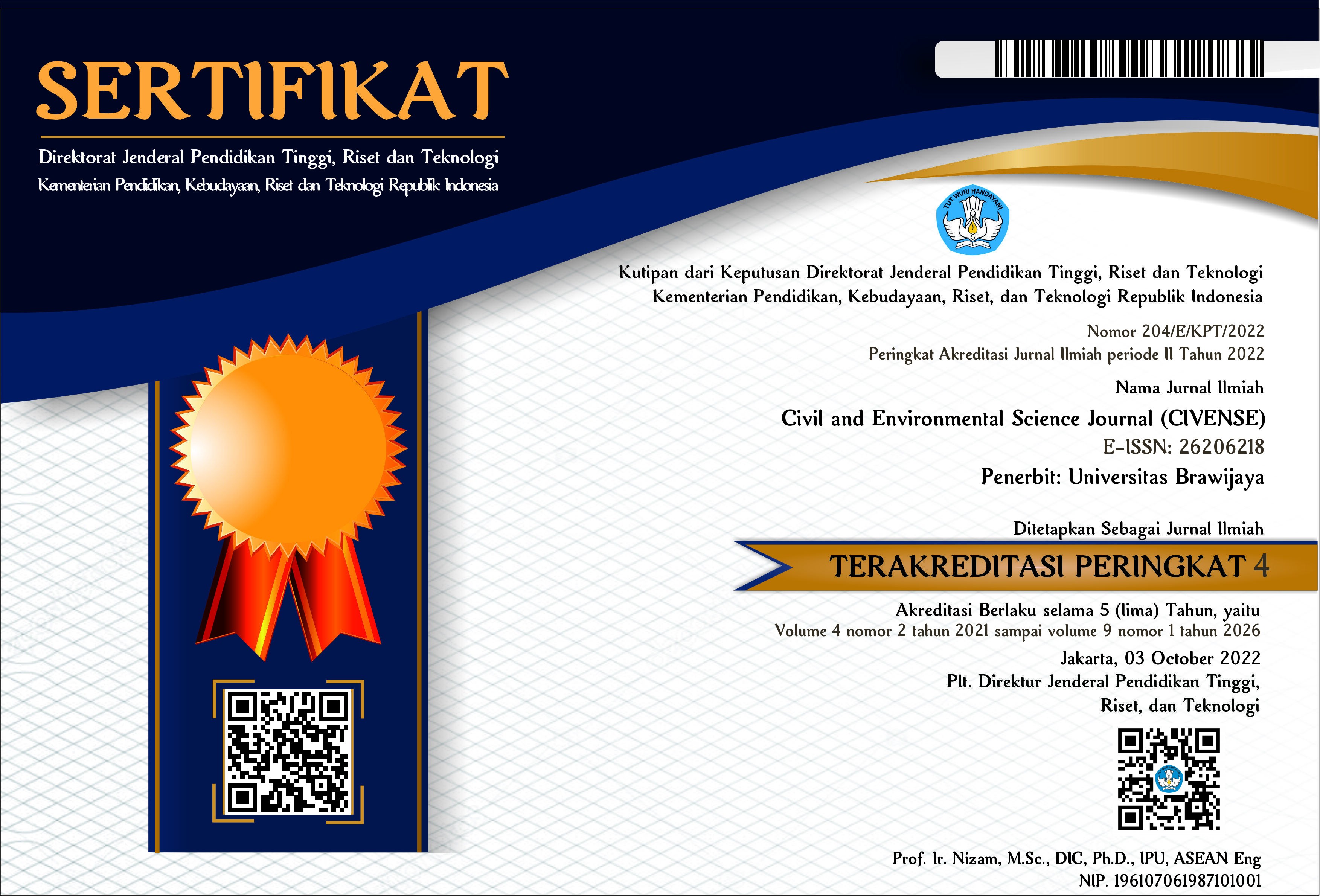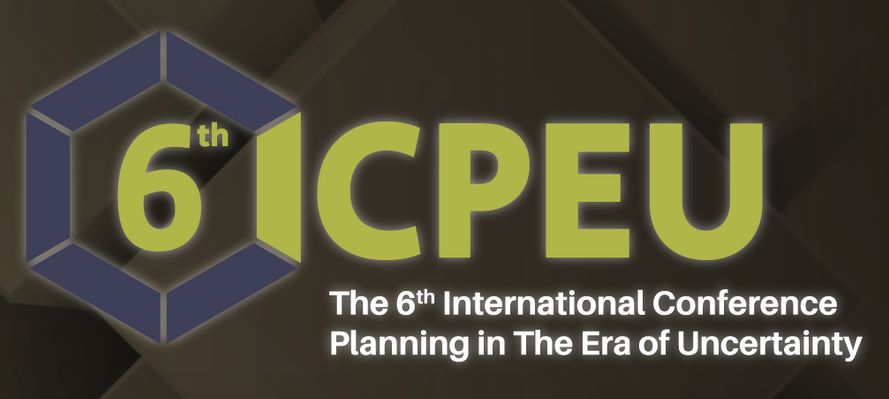Aims and Scope
Civil and Environmental Science Journal (CIVENSE) is an international journal, peer-reviewed research publication covering new concepts, theories, methods, and techniques related to science and engineering. The journal will cover, but is not limited to, the following topics:
Innovation in Material Science and Engineering
This scope includes modeling, research, and application of concrete (i.e., Self-Compacting Concrete (SCC), Self-Healing Concrete (SHC), High Strength Concrete (SHC), and so on), steel (hot-rolled and cold-formed), polymers, fibers, and asphalt technology. It also accommodates environmentally friendly building materials such as slag, fly ash, Recycled Concrete Aggregate (RCA), etc.
Structural and Earthquake Engineering
This scope concerns the structural design, analysis, modeling, research, and application of buildings, bridges, towers, tunnels, and other structures under static, cyclic, or dynamic load. Earthquake engineering is used to understand the interaction between the structural elements with the earthquake load. Structural design includes strength, stability, safety, and comfortability, while analysis, modeling, and research concern structural behavior and performance, including strength, deformation, stiffness, rotation, ductility, etc.
Geography and Planning
These topics are related to the sciences, analytics, development, intervention, and design of communities, cities, and regions, including their physical, spatial, technological, economic, social, and political environments
Environmental Engineering
This scope studies sanitary engineering, hazardous waste and pollution management, environmental remediation, green engineering, industrial ecology, water purification, wastewater treatment, developing smart agriculture and many more.
Transportation Engineering
This scope deals with moving people and goods from the origin to the destination. This scope involves the design, construction, and maintenance of transportation infrastructure (streets, canals, highways, railways, airports, ports, mass transits, and so on). The study also includes traffic engineering, queueing theory, urban engineering, pavement, Intelligent Transportation Systems (ITS), infrastructure management, and many more.
Construction Management
This scope includes estimating, reviewing, and applying the project’s schedule, cost, quality, safety, scope, and function management.
Forensic Engineering
This scope deals with the investigation of the structural condition using some structural testing (destructive and Non-Destructive Test (NDT)) to understand the cause and location of structural failure or why it does not operate or function as intended. This scope also helps society to solve structural problems or improve structural performance.
Coastal and Harbor Engineering
This scope includes all research reports related to coastal construction of artificial harbors by installing breakwaters along with other marine structures, generating a safe refuge for vessels, wherever no natural harbor exists. The artificial structures suck in the pressure of the waves, repelling it from hitting the vessels anchored in the harbor.
Geotechnical Engineering
This scope covers rock and soil to support the upper structure properly. This scope also includes foundations, retaining walls, and other structures. The study also covers groundwater, landslide prevention, landfill, etc. The investigated parameters include strength, stiffness, dilatancy, etc.













